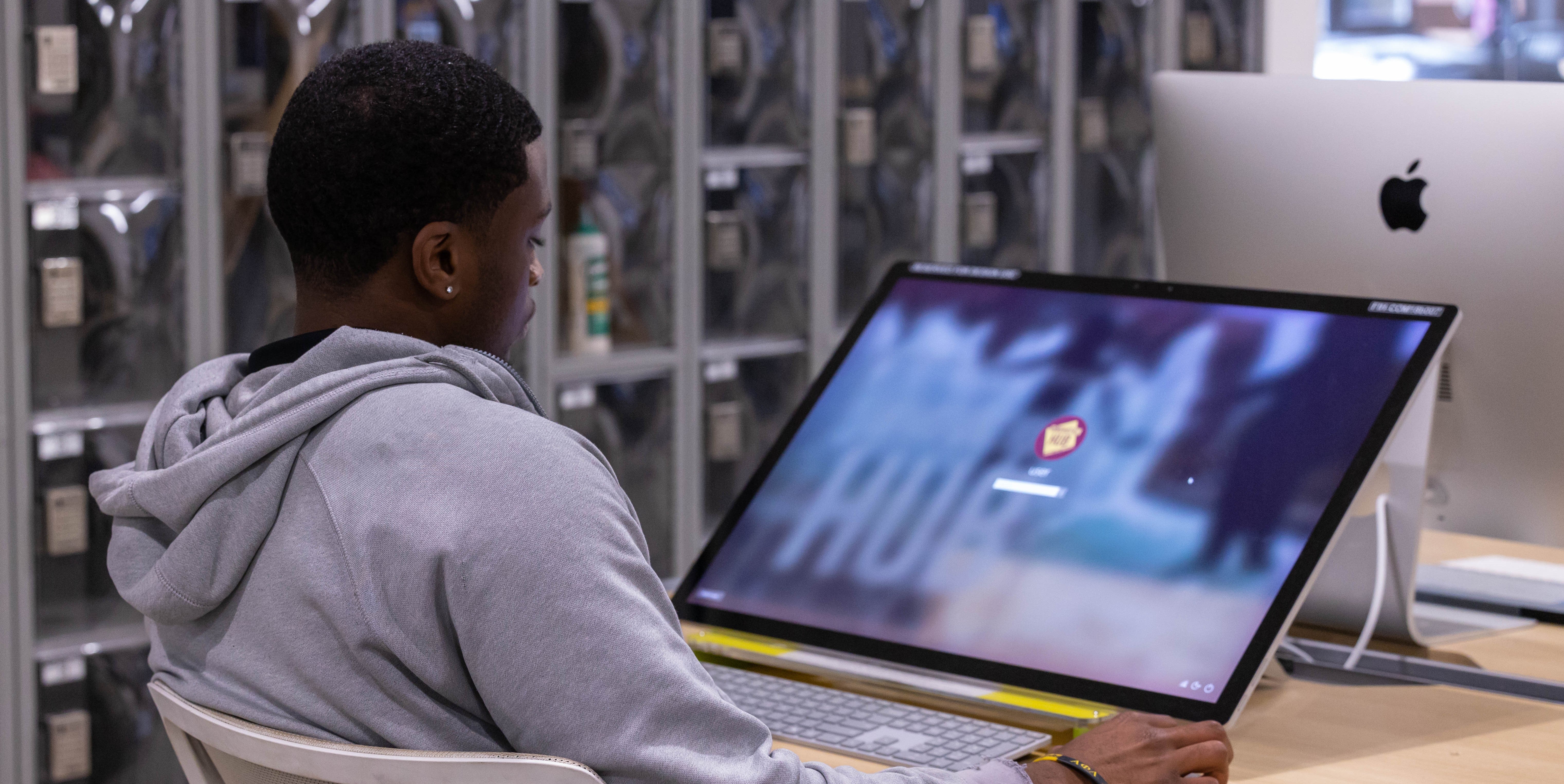
FY2022 Annual Report
Letter from Interim Chief Information Officer, Rick Burnette
As we reflect on the last year's accomplishments, I appreciate the work being done throughout the organization and am proud of our successes. We expanded the services and support we provide to campus and used technology in new and creative ways to enable the university to move forward. Technology was used to fuel innovative solutions and partnerships were formed across campus and throughout the community.
ITS delivered the university's first online environment capable of processing and storing protected health information and was there to assist as renowned researcher Dr. Brad Cox launched his study on college autism in the new environment. We also worked with the FAMU-FSU College of Engineering to secure the systems and data to develop the next generation of aerospace materials for a U.S. Air Force project. ITS also managed $4.2 million of Student Technology Fee money, distributing funding to projects and initiatives that will transform student learning at FSU, including a selective laser sintering 3D printer system and a digital course development studio.
But perhaps, when looking at the past year, what I find most transformative is the work to bring together FSU's email accounts into a single environment. This effort was fundamental for FSU to collaborate between faculty, staff and students—opening opportunities for innovation. We also made extensive efforts to improve our cyber infrastructure. Furthermore, we took pride in maintaining and growing support despite the hiring and retention challenges we have faced over the past two years. We were creative in solving this challenge by expanding our intern cohort. Twenty-eight student interns contributed their time, ideas and energy to ITS projects during the 2021-2022 academic year. Not only has the career trajectory of those students been transformed by their experiences working in ITS, but our organization and the way we do business have grown from their fresh perspectives and critical thinking.
In the coming year, ITS plans to fuel innovation, grow partnerships and expand services across the university. We are collaborating with campus leadership to create a research technology roadmap and broaden the technology services and support available to university researchers and our colleagues we will engage through FSU Health. Work is already underway to improve the university core network's reliability. A significant upgrade will deploy the most advanced threat protection available to FSU devices and our cloud environment.
ITS will seek ways to transform our team and work in the year ahead. And we hope you will join us as we continue to empower the campus through technology.

Richard R. Burnette III, PhD
Associate Provost and Interim Chief Information Officer
Information Technology Services
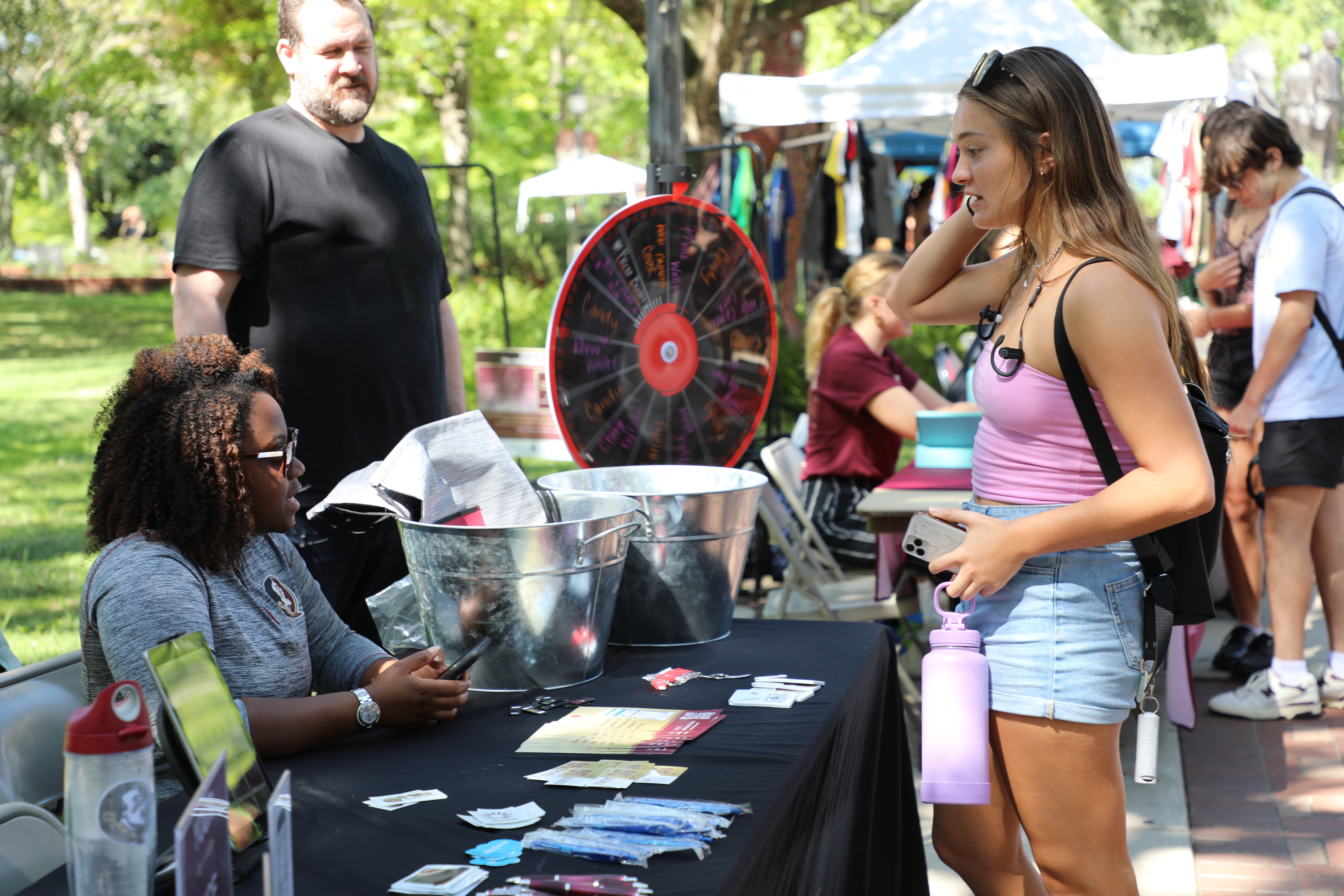
Student Success
ITS provides experiential learning for 28 students as part of intern cohort
ITS has hosted dozens of student interns as part of InternFSU since the program's inception in 2018. During the 2021-2022 academic year, ITS employed 13 interns during the fall semester and 15 interns during the spring semester. Within ITS, interns participate in an intern cohort, allowing the students to interact and network throughout the semester. In addition to their day-to-day tasks, ITS interns attend monthly social gatherings and cap their experience with an end-of-semester presentation to ITS leadership sharing their semester work and how they contributed to the ITS mission. The internship program provides experiential learning opportunities for current FSU students—but the students are not the only ones who benefit. ITS interns contribute to multiple ITS initiatives and bring new perspectives to ITS projects and processes. "The internship I participated in via InternFSU helped me immensely in both my academic career and my professional career," says Allison Muckerman, a former ITS cybersecurity and information security intern. We feel the same, Allison. We feel the same.
"Overall, I cannot say greater things about this internship and the knowledge and mentoring my supervisors and team members taught me."
Instructional technologies support hybrid learning
While online classes were the "new normal" in 2020, hybrid learning was the name of the game in 2021. Over 14,000 FSU students participated in a hybrid class during the Fall 2021 and Spring 2022 semesters. Hybrid classes include courses with either a percentage of online instruction or a mix of in-person and online students. These classes bring their own set of challenges and require specific technology. The ITS Technology Enhanced Classrooms team manages 263 classrooms in 48 buildings across the Tallahassee main campus, and every single one of these rooms has Zoom capabilities, enabling it to be used as a hybrid classroom. To meet this need, ITS installed over 400 cameras—instructor cameras, student-facing cameras and document cameras—and quality microphones and projectors in university classrooms. But the work did not stop there. Technicians from the Technology Enhanced Classrooms team provided more than 300 customized, one-on-one training sessions since the start of the Fall 2021 semester to faculty members who requested coaching on how to use Zoom and other classroom technology.
Textbook and syllabi dashboard provides students with a list of required course materials
Students at FSU can now access a list of school supplies, so to speak, for their upcoming classes each semester. In April 2022, Governor Ron DeSantis signed Senate Bill 7044, requiring all state universities to prominently post a list of required textbooks and instructional materials for courses during the upcoming term. To meet this requirement, ITS worked with the Office of Institutional Research, the University Registrar, the Office of Digital Learning and Academic Technologies and Undergraduate Studies to create the FSU Textbook Dashboard. The dashboard provides a list of required textbooks and other course materials and a hyperlink to the syllabus for each undergraduate state core course. Students can search by course number, course title, instructor name or a dropdown list of other criteria to pinpoint what materials are required for their classes. The dashboard is updated at least 45 days before each semester, giving students ample time to obtain their course materials and prepare for class.
Online form streamlines undergraduate major changes
In the past, FSU students who were approved to change to a new major had to run a paper form to various offices around campus to gather the signatures needed to make the change. To improve the experience, the ITS Student Application Services team worked closely with undergraduate academic advisors, deans' offices and departments across campus to digitize the Undergraduate Program/Plan Change form and workflow. The new digital form automates the primary major change request process, routing the submission to the appropriate offices. After a student meets with the prospective major's advisor to determine the feasibility of the major change, the advisor enters the change request in myFSU Student Central. The student then digitally acknowledges the change request, and the request routes to the appropriate offices for review and final approval. The new, automated workflow expedites primary major changes and ultimately supports university retention and graduation efforts. Since the automated form and workflow launched in September 2021, more than 5,200 primary major change requests have been routed through the new workflow. This change is part of a multi-year effort by ITS to automate the routing of dozens of student forms.
ITS welcomes students back to campus with tech scavenger hunt
A game is afoot. In August 2021, ITS planned a Tech Takeover campaign to welcome students back to campus. After months of online and remote classes, students were eager to get out and experience campus. ITS hosted an on-campus scavenger hunt during Welcome Week to encourage students to explore popular campus buildings and landmarks while learning about available ITS resources. The scavenger hunt had people racing from Suwannee to Dirac and everywhere in between while learning about the virtual computer lab, discounted computer repairs and more. A total of 65 students participated in the scavenger hunt, with the winning team taking home a selection of FSU merchandise. As part of the Tech Takeover campaign, ITS also launched a webpage with expanded information to help students with everything from setting up their devices to discovering new tech resources on campus.
Technology Services Building serves as set for Film School production
Lights, camera, action! ITS had a blast hosting students from the FSU College of Motion Picture Arts in early March as they shot a graduate thesis film in the Technology Services Building. For several days, the ITS offices in Innovation Park became the set of an office Christmas party gone wrong. The renovated Technology Service Building provided the perfect backdrop of conference rooms and cubicles for the scenes. Several ITS staff members even made cameo appearances as extras in the film. The office was full of lights, cables and creative energy during the three days students shot in the building. "Our director and crew were very excited to be shooting at this location in particular, and I hope you and your team were able to enjoy yourselves just as much while partaking as extras on our set," expressed Robert Burns, FSU graduate student and film producer. The film, Shooting Blanks, was written and directed by FSU graduate student Cormac Schambach and debuted in July 2022.
Student Technology Fee funds digital course development studio at Panama City campus
Each year, the Student Technology Fee funds millions of dollars of instructional technology at Florida State University, giving departments across the university an opportunity to secure funding for innovative and critical instructional technology projects. One such project is the development of a digital course development studio at the FSU Panama City campus. The College of Applied Studies submitted the proposal to develop a recording studio for faculty to create high-quality instructional videos and provide students access to work on multimedia productions, such as podcasts, sound recordings and editing, for class assignments. "This proposal is to … give the [Panama City] faculty the same ability as those in Tallahassee to create professional-quality video and audio to improve instructional services and delivery," explains Banyon Pelham, Ed.D, assistant dean for the College of Applied Studies. The proposal was awarded $50,000 for purchasing cameras, microphones, lights and production software required to outfit the space as a professional-grade studio. As part of the project, the studio will also employ a media production specialist to assist faculty and student with creating and editing media. The first round of equipment has been ordered, and FSU Panama City aims to have the recording studio open in November 2022.
$1,000+
IT spending per student
$4.217
million Student Technology Fee dollars distributed in 2021/2022 award cycle
2,247,486
course enrollment activities processed by myFSU Student Central system
3,240
hours of mentoring provided to ITS interns through the InternFSU program
263
FSU classrooms supported by ITS
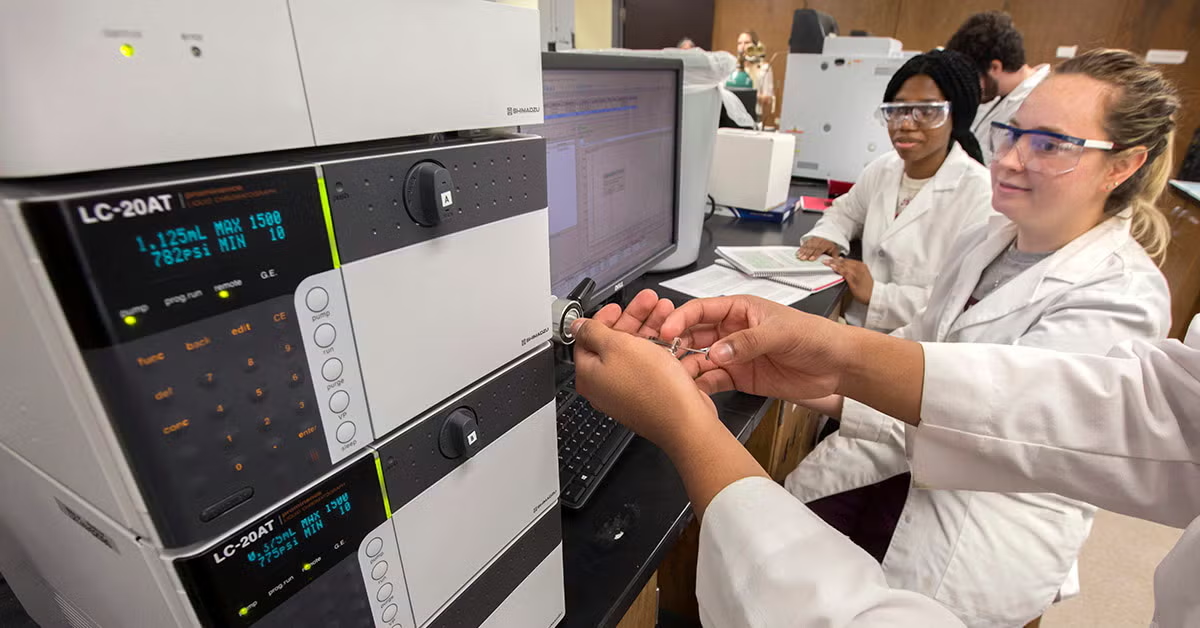
Research
Health Data Sciences Initiative pilots first research project
The Health Data Sciences Initiative (HDSI) is a cross-collaborative initiative between ITS, the Office of Research, University Libraries and FSU colleges to expand the big data resources and cyberinfrastructure necessary for FSU researchers to conduct health-related research and compete for major contracts and grants. In July 2021, the HDSI technology infrastructure work team successfully stood up a cyberinfrastructure environment capable of processing and storing health data in compliance with HIPAA regulations. The team is working in tandem with the HDSI compliance work team, comprised heavily of ITS staff members, to implement the software, applications and onboarding processes necessary for a compliant research ecosystem. Pilot projects are now underway, including research by Dr. Brad Cox exploring college student autism. Dr. Cox, a senior research associate for the FSU Center for Postsecondary Success and founder of the College Autism Network, is working with the HDSI team to customize his online research environment and database as he leads the field in college autism studies. "I was worried that the complexities of education data and autism data would run into legal and security issues," says Cox. "However, after talking with the HDSI team, I'm confident we'll be able to collect data and create a database in a way that is both secure and compliant." The HDSI team will take on additional pilot projects in Fall 2022 until the system is fully operational in 2023.
"Scientists do science to go after some dream, particularly a dream that was had when younger. The reason I can still do this type of research is because at that moment, I was dreaming that one day I could do this type of simulation."
Research Computing Center expands customer base
The FSU Research Computing Center (RCC) has been predominantly STEM-focused, with many researchers operating in mechanical engineering, biochemistry, weather prediction and data sciences. Inspired by the non-STEM research pioneers who utilized RCC resources to power music theory research and house interactive toolkits for family violence studies, ITS set out to expand the researchers leveraging research computing services at FSU. ITS started to revise the RCC funding model to expand its customer base. The RCC saw 138 new account requests in the first half of 2022, and new research projects were initiated with non-traditional departments and colleges, including Economics, English and Business. Then, in Spring 2022, the RCC embarked on a three-year pilot project with University Libraries to provide short-term funding and support for digital humanities and social sciences projects. The RCC launched the Interdisciplinary Data Humanities Initiative and hired a support specialist to serve as a bridge between digital humanities researchers, FSU Libraries and RCC resources. Already, the RCC is assisting Dr. Will Hanley, an associate professor of history, and Dr. S. E. Gontarski, a professor of English, with setting up digital repositories to store and analyze annotated news articles.
RCC researcher Julia Wang studies beta cells to find a cure for diabetes
"It is estimated that one in three people by 2050 will have diabetes," states Dr. Julia Wang, assistant professor of biomedical sciences in the FSU College of Medicine. The Wang Lab focuses on understanding diabetes on a molecular level by comparing beta cells—the cells in the pancreas that secrete insulin—in diabetic patients with cells in controlled patients. Dr. Wang's research uses single-cell transcriptomics technology to understand what went wrong in the beta cells of people who have developed diabetes. One experiment gathers thousands of single cells, and every cell has 20,000 gene expression values. "So you can imagine it's very, very complex data," says Wang. The graphics processing unit (GPU) and storage services provided by the Research Computing Center allow Dr. Wang's research team to handle big data and quickly perform complex data analyses. Dr. Wang has a partition in the Sliger Data Center that contains 22 dedicated central processing units (CPUs) and 4GB of memory per CPU—and she uses every bit of memory to perform her experiments. Ultimately, her lab hopes their research can help find a cure for diabetes.
Student uses machine learning to analyze social media response to COVID-19
When COVID-19 sent the world into isolation, many individuals turned to social media for their primary source of social interaction. Miranda Phillips, a biochemistry student and FSU Undergraduate Research Opportunity Program participant, worked with Dr. Prasad Maddumage and Dr. Paul van der Mark of the Research Computing Center to use machine learning to track emotional responses to COVID-19 on Twitter. Their study analyzed over 30 million COVID-related tweets to understand how emotions surrounding the pandemic changed from March to November 2020. The most common emotion portrayed in tweets during the height of the pandemic was surprise (~45%), followed by anger (~35%)—a stark contrast to the random sample of tweets before 2020 that identified happy (33%) as the most common tweet emotion. The team shared their research results at the PEARC21 conference in July 2021. Miranda attended the conference and represented her team during a virtual poster presentation.
ITS ensures research compliance for $6 million Air Force project
Research is underway at the FSU High-Performance Materials Institute to design and test the next generation of aerospace materials. The $6.3 million research project is a partnership with the U.S. Air Force, Department of Defense, Florida State University and the University of Southern Mississippi. And ITS is playing an important role. The ITS Information Security and Privacy Office is working with the FSU research team to ensure compliance with the National Institute of Standards and Technology (NIST) so the project meets proper regulatory and contractual restraints related to cybersecurity. ITS ensures that controlled unclassified information is processed correctly and stored in FSU's secure data enclave, the Noles Environment for Secure Technology. Hackers often target government agencies and their contractors to gain access to highly sensitive data. Therefore, it is the responsibility of ITS to secure the systems and keep the research data safe while the engineers create new, multifunctional materials for use in everything from aircraft to rockets.
386,195
teraflops of peak performance
512 million
CPU hours delivered by Research Computing Center
850
high performance computing users
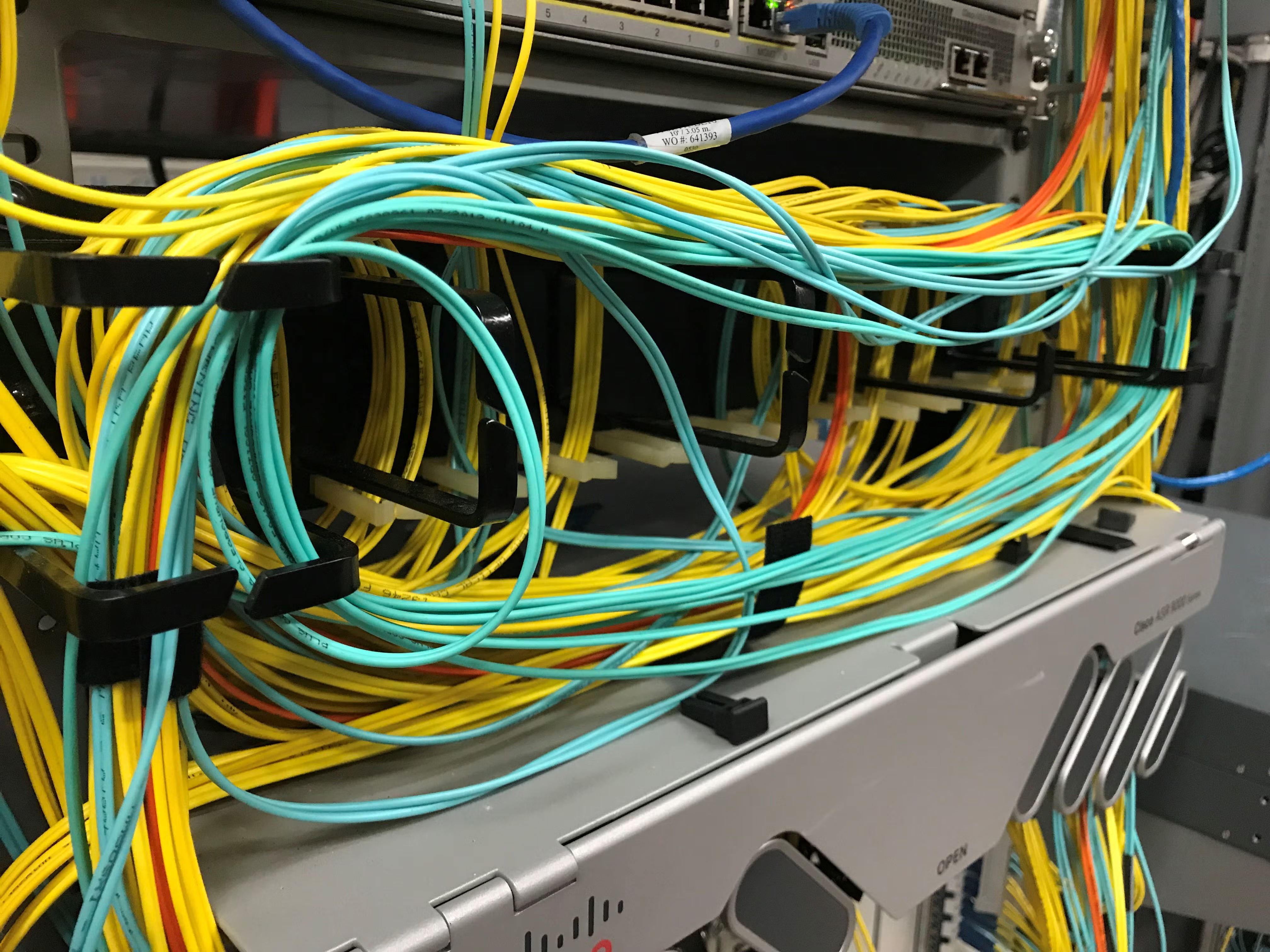
Infrastructure
Human resources system upgrade delivers improved time reporting and approval processes
ITS supports several enterprise administrative technologies at FSU. In April 2022, ITS coordinated the myFSU Human Resources system upgrade to the latest image and tools version 8.59. The myFSU HR system is used by 16,870 faculty, staff and student employees annually and hosts all personnel and payroll activities at FSU. The system upgrade delivered numerous efficiency enhancements to the homepage and mobile adaptive pages. Enhancements included a global search function; a new quick access bar and notifications panel so individuals can quickly navigate to actions and alerts; a new electronic additional pay form with robust workflow; and an area to provide announcements. The upgrade also delivered improved time reporting and time approval processes for employees and managers and the ability for hourly employees to punch in and out quickly. As part of the upgrade, ITS worked with the FSU Office of Human Resources to develop training videos coaching employees and managers through entering and approving time in the new system.
ITS guides university units through disaster recovery assessments
Be Prepared is not just the Boy Scouts' motto. It is the premise behind the FSU Seminole Secure business impact analysis and disaster recovery program. As part of the program, ITS is guiding 54 university units through an individual business impact analysis and the development of a disaster recovery plan. Each unit's disaster recovery plan contains responsibilities for recovering and restoring critical systems and data in the aftermath of an unplanned incident, such as a hurricane or cyberattack. As of June 2021, 22 units have completed their business impact analysis and submitted a disaster recovery plan. ITS is now collaborating with these units to develop an annual disaster recovery preparedness exercise to help them pinpoint areas of improvement and fine-tune their disaster recovery plans. An additional 22 university units are slated to complete their disaster recovery plans in 2022. This ongoing initiative improves the university's cybersecurity posture by ensuring the continuity of vital services and reducing reputational risk in the event of a disaster.
Central authentication service preps for move to cloud
In Fall 2021, ITS upgraded the university's central authentication service (CAS) to version 6.4. CAS, known to the public as the FSU login page, is the single sign-on authentication service used to access university applications such as myFSU Portal and myFSU HR. The upgrade included routine maintenance to improve the performance of the university login page and make it easier to patch software quickly. The upgrade was also part of a larger container adoption initiative. The upgrade enabled ITS to package the CAS webpage using containers, a way of bundling an application with all its code and dependencies. These containers will make it easy to move CAS to the cloud in the future. While the change was transparent for users, university departments completed testing to ensure all applications using the university login page would continue to work after the upgrade. The upgrade went live on December 14, and 120,225 users have successfully authenticated using the updated page since the upgrade.
“All of the hard work and long hours put in by you and the rest of ITS networking really are appreciated.”
Sliger building becomes the first gold certified building on campus
When the ITS Research Computing Center earned a gold certification from FSU Sustainabile Campus, they could have stopped there. But instead, ITS employee Mitch Gans decided to get the whole building certified. The Center for Information Management and Educational Services (CIMES) and the Resilient Infrastructure & Disaster Response Center (RIDER) joined the Research Computing Center as gold certified offices, making the Sliger building the first space on campus in which all building tenants are Green Office Certified. The Green Office Program is a Sustainable Campus initiative that encourages sustainability in the workplace and recognizes departmental achievements. A gold designation is the highest level of certification available, and only six departments on campus hold the honor. As a Green Office, the Research Computing Center spearheaded a plastic can ring recycling program for campus and piloted the Green Office training program. Future sustainability efforts focus on establishing the Sliger Building as a materials recovery facility for hard-to-recycle objects such as small appliances and printer cartridges.
ITS expands cloud service offerings
Last year, ITS added multiple cloud-based software to our service portfolio. ITS onboarded additional university units into the new, cloud-based contact center service powered by RingCentral, giving more FSU help desks and departments the flexibility to help customers from any location using the internet-hosted phone system. In April, ITS worked with the FSU Budget Office to move university budgeting functions to Workday Adaptive Planning, known for its user-friendly interface and enhanced reporting capabilities. Also in April, ITS upgraded the university fax service to RightFax Connect. This hybrid solution moved the university from a physical fax telephone line to the cloud, providing improved stability and a web application that enables users to access faxes remotely. ITS also partnered with University Libraries and the Health Data Sciences Initiative to prep for a Fall 2022 soft launch of REDCap, a web-based database for secure storage of clinical research data. In addition to adding new cloud services, ITS continues to see increased usage of the existing myFSUVLab. The cloud-based, virtual computer lab has seen a notable rise in logins and application launches over the past several years.
22.3 million
authenticated sign-ins to FSU systems
22,309
campus workstations subscribed to ITS directory service
6,664
Wi-Fi access points across FSU Tallahassee and Panama City campuses

Security
FSU Zoom environment becomes HIPAA-compliant
For several years, individuals dealing with protected health information had to use a particular Zoom environment with expanded security controls. This meant double Zoom accounts, double Zoom logins and double the headaches. However, thanks to system-wide security enhancements that became available in Fall 2021, the standard FSU Zoom environment is Health Insurance Portability and Accountability Act (HIPAA) compliant. Now, rather than switching between two Zoom accounts, employees in the College of Medicine, University Health Services and other staff members dealing with protected health information can use a single Zoom environment. The standard Zoom environment also offers more features and functionality, including cloud recording and the ability to include students in secure Zoom meetings.
ITS announces the end of mandatory password resets
Every FSU student, faculty and staff member is familiar with the "Your password has expired" message on their myFSU login page. In the past, users had to reset their password every 180 days to secure their account, causing frustration to users who were in a hurry or tired of coming up with different passwords. Fret no more, FSU. ITS announced the end of mandatory password resets in Fall 2021. This change is partly due to the successful implementation of 2-factor authentication (2FA), which requires individuals to verify their identity with a mobile device after each FSU login attempt. Before 2FA, there were 6,927 known compromised FSU accounts at FSU in 2020 compared to 215 compromised accounts in 2021. With the proven success of 2FA, users' accounts are more secure and protected than ever.
Operation CyberSAFE escape room encourages cybersecurity
Agent, we need your help. In October 2021, ITS hosted Operation CyberSAFE—a Mission Impossible-themed escape room—as part of National Cybersecurity Awareness Month. The mission? Protect FSU from notorious cyberhacker Anonymous and stop him from accessing top-secret Seminole data. More than four hundred FSU students, faculty and staff raced against time to solve riddles, break codes and save the day in the cross-campus, interactive escape room. "I think it is brilliant to have an escape room at FSU. I've truly never been so excited about cybersecurity before," said FSU student Allie Posner. A total of 287 teams participated in the escape room—either in-person on the FSU main campus or virtually via the myFSU Mobile app—and the winning time was an impressive 22 minutes and 24 seconds. ITS also welcomed 157 people to cybersecurity training sessions held throughout the month. Training topics ranged from how to spot phishing attempts to implementing zero trust strategies and included guest sessions hosted by Microsoft and Cisco. The month's activities invited the FSU community to take an active role in learning about cybersecurity, and ITS is proud to call the mission a success.
FSU cybersecurity risk rating rises two points
Nobody likes getting a bad report card. In August 2021, when FSU received a RiskRecon score of 5.7—equivalent to a C grade—we knew we had work to do. The RiskRecon score by Mastercard is a summary of an organization's current cybersecurity risk rating. The score looks at network security, software patching, web encryption and other factors to provide an overall score and report that prioritizes recommended corrective actions based on threat severity. To raise our score, ITS blocked insecure protocols, worked with units to patch vulnerabilities and increased the use of the ITS free security certificate program. ITS also assisted units with removing or replacing systems past the end of life, which continues to be one of the biggest threats to FSU. One year later, ITS improved its score to 7.3—a B grade—and now ranks 0.7 points higher than the industry average among universities. In fact, FSU currently has the highest security posture in the U.S. News & World Report's top 20 national public universities. In the coming year, ITS will continue to expand the technology used to monitor and remediate risks across the university network. And maybe next year we will be straight-A students.
“With the major shift to hybrid work and reliance on technology during the pandemic, the importance of data security cannot be underscored enough.”
New ITS YouTube series shares vital cybersecurity tips
ITS launched a new YouTube series in Fall 2021. The monthly video series explores common cybersecurity topics to help Noles stay safe in today's digital world. Each video focuses on a different cybersecurity topic, offering loads of valuable tips and tricks to the FSU community. To date, ITS has released ten videos covering topics such as password security, software updates, geotagging and phishing. The videos are part of ITS ongoing efforts to educate campus on good cybersecurity practices at school and at home. Visit the FSU Information Technology Services YouTube channel to catch up on missed content and subscribe to not miss any new videos.
FSUGuest registration changes create a more secure wireless environment
In the land of Wi-Fi, FSUSecure reigns supreme. Which is why ITS made the switch in December 2021 to no longer accept FSUID logins on the FSUGuest Wi-Fi network. Instead, FSU students, faculty and staff are now required to use the FSUSecure network. ITS implemented this transition for the safety of the FSU community; most users were simply not aware of the risks and restrictions of the FSUGuest network. As a public network, FSUGuest is subject to eavesdropping and cannot access the FSU internal network. The FSUSecure network provides a secure, encrypted connection. It allows devices to connect automatically when they are within range of the network, eliminating the need to sign in again and again. FSUGuest—offered for the convenience of guests and campus visitors—can still be accessed by registering a phone number but is no longer a contender for the Wi-Fi throne. After the change, the number of daily users on the FSUSecure network rose by 30 percent.
ITS partners with FBI to offer internet safety training to the FSU community
The internet can be a dangerous place. Over the past year, ITS partnered with the Jacksonville FBI Office to offer internet safety training to FSU students, faculty and staff. The session covered the increasing potential for predators and online bullies targeting children via social media. The FBI also shared harrowing facts and examples of the prevalence of online child exploitation. Though targeted toward parents, the information provided all attendees with a greater understanding of the dangers of online interactions and an increased ability to identify red flags and risky behaviors. Nearly 70 people attended the session, and the training will be offered again during the Fall 2022 semester due to popular demand.
518 million
malicious attacks blocked through email filtering
16.3 million
successful 2-factor authentications with Duo
74%
employees who know where to access cybersecurity training at FSU
4.2
petabytes of data protected by ITS enterprise storage
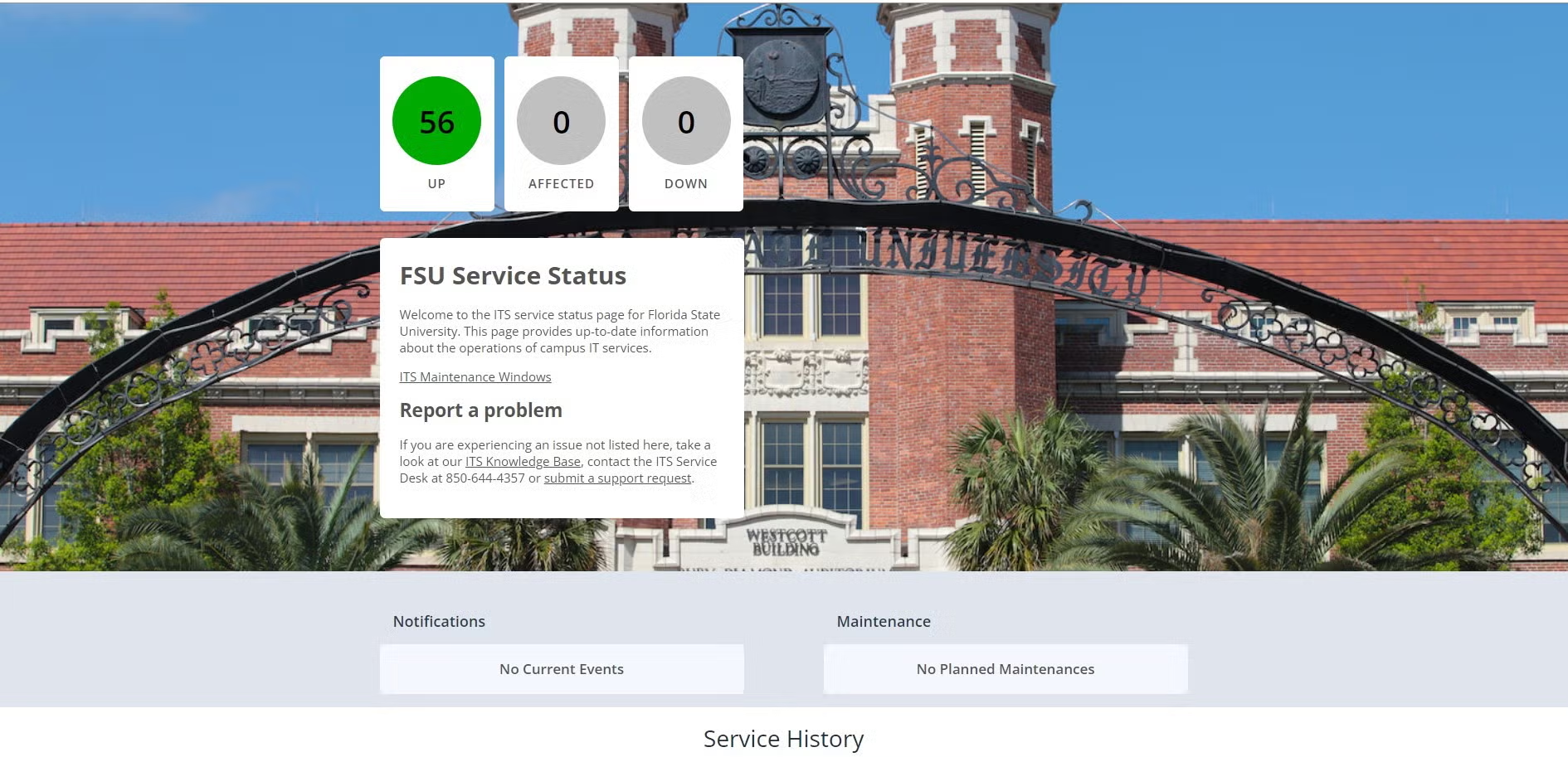
Services
Additional software titles added to FSU virtual computer lab
Why trudge to campus to sit in a stuffy computer lab when you can access university software from the comfort of your couch? Students at FSU can use the myFSUVLab virtual computer lab to access more than 30 specialty programs and apps—without ever setting foot on campus. While most apps available in the virtual lab are accessible by all FSU users, ITS also runs over 350 custom apps and desktops on behalf of 14 different departments. In FY2022, ITS made a massive effort to expand the software titles available within the virtual computer lab. ITS deployed two new science applications for the FSU Republic of Panama campus, added two applications for the FSU Panama City engineering program and installed two programs for the psychology department. ITS also added Anaconda Navigator to the lab to meet specific user requests and worked with the College of Social Sciences & Public Policy to expand the virtual computer lab resources for running ArcGIS, a data-intensive application for building interactive maps. As ITS continues to expand the software titles and applications available in myFSUVLab, the virtual computer lab is expected to see a continued rise in logins and application launches (Chart 5.1 and 5.2).

Chart 5.1

Chart 5.2
Academic colocation service provides a state-of-the-art facility for university data
Managing servers is complicated. Which is why ITS gathered feedback from IT managers to understand what data storage services and features would provide value to the university community. Based on the findings, ITS expanded its service offerings in 2021 to include an academic colocation service that rents server equipment and space to FSU customers. The academic colocation service enables departments to physically store servers and other storage hardware at the Sliger Data Center and currently has 23 customers. This centralized environment provides dedicated fast network infrastructure to FSU campus locations and allows departments to interconnect their storage with other data center customers locally and globally. The data center is equipped with redundant power, a chilled-water cooling system and a 24/7 monitoring service—making it a secure and state-of-the-art home for university data storage.
New status page alerts campus to service incidents
The ITS Service Status page got a significant upgrade just before the new year when ITS transitioned from a home-grown webpage to an industry-leading platform. The new page, powered by StatusHub, provides up-to-date information about the current status of major campus IT services, such as Wi-Fi and Zoom. The site uses a color-coded system to indicate if a service is operating normally (green), having performance issues (yellow) or experiencing a service disruption (red). The site also displays a calendar of past, present and future planned maintenance to ITS services. However, one of the most beneficial new features is the ability to subscribe to receive email, phone or Teams alerts for all or select services. The new status page has had 76,913 total visitors in the first six months since it launched. Additionally, 232 people have subscribed to receive service alerts.
ITS offers free training on in-demand Microsoft technologies
In 2021, ITS formed a new partnership with Microsoft to offer weekly training on popular and emerging Microsoft technologies. The live, online sessions are led by a Microsoft professional and targeted exclusively to members of the FSU community, giving attendees a truly customized training experience. Training sessions range from beginner-level introductions to Microsoft Outlook or Teams to deep-dives into advanced tools such as Minecraft for education. In addition, FSU students, faculty and staff have free access to the Microsoft Enterprise Skills Initiative (ESI), which provides training resources and vouchers for FSU members to take Microsoft certification examinations free of charge. Over 120 learners have accessed the ESI portal for advanced training, with the most popular topics being infrastructure and data and artificial intelligence. Both training programs allow FSU students and employees to sharpen their technical skills and gain certifications key to advancing their careers.
ITSM roadmap drives improved service delivery to campus customers
With 106 public-facing service offerings in the ITS service catalog, administering them is a full-time job. In January 2022, ITS launched an expanded IT service management (ITSM) team dedicated to managing the end-to-end delivery of ITS services to our customers. Within a few months of formation, ITSM revised the organization's incident management process and launched a new service catalog management practice, which included a cleanup of the online service catalog and implementing a new service onboarding process. In addition, the team created guidelines for service offering managers to encourage responsible ownership and maintenance of each ITS service. The ITSM team also began to refine the change enablement process to assess organizational risk and impact better when implementing changes. In the year ahead, the ITSM team will instill a problem management practice to track and understand the causes of service incidents to prevent them from reoccurring. The team will also tackle configuration management, which will include standing up a digital database to track all ITS service dependencies.
552,605
meetings held via Zoom
136,218
files shared via NiFTy secure file transfer service
9,513,793
private chat messages sent through Microsoft Teams
1.16 million
myFSU Mobile app unique visitors
432
terabytes of data stored on FSU OneDrive
“I spend so much time switching between my employee and student email accounts, and I somehow still miss communications. It will be much easier to do my job with all of my emails in one place.”

Efficiencies
Student email migration successfully moves 50,000 accounts to a consolidated email system
FSU students said "Bye Bye My" to their @my.fsu.edu email accounts in 2022. ITS recently led a major One O365 project to consolidate student and employee Office 365 accounts into one system. At completion, ITS transitioned over 50,000 student and admitted applicant email accounts to @fsu.edu accounts. The migration was an outstanding success. Over 60 percent of migrated students signed in to their mailbox during the first two weeks post-migration, and only one percent of students contacted the ITS Service Desk for support. Microsoft executives were impressed with the smooth migration, giving accolades to the project team for effective project management and communications. Student focus groups confirmed that students consider the new @fsu.edu email addresses to be more convenient, professional and easier to remember. This migration marks a major milestone in the multi-year One O365 project. It opens doors to increased collaboration across the university—especially between students and professors, researchers and graduate students and departments and student employees.
Instructor credentials system supports FSU accreditation
ITS partnered with the Office of Faculty Development and Advancement, Human Resources and Institutional Research to build new functionality in myFSU Student Central to track the credentials that make each FSU instructor qualified to teach. Within the Instructor Credentials System (ICS), departmental reps assign each instructor one or more Classification of Instructional Programs (CIP) codes, indicating which courses and fields of study they are qualified to teach across the United States. Departmental reps then use ICS to collect and store documentation of academic degrees and alternative credentials, such as licensure, research publications and professional experience. This digital workflow has automated and streamlined the instructor vetting process at FSU, saving each department hours of effort every year. In addition, department representatives can upload each instructor's data in the system once and need to revisit it only if the instructor acquires additional credentials. ICS helps ensure FSU maintains accreditation by providing an official system of record for reporting instructor credentials to the Southern Association of Colleges and Schools Commission on Colleges (SACSCOC).
"It has been very helpful to be able to utilize ITS resources in HR when there are employee absences. Without the support of ITS, we would either have to put the work on hold or try to manage technical tasks and challenges within HR staff."
Survey aims to improve available technology training topics and methods
ITS conducted a survey in May 2021 on behalf of the Technology Architecture Committee to improve technology services at FSU. The survey sought input on technical training available to faculty and staff. The survey was sent to a random sample of FSU faculty and staff and identified common technology tools and applications used by employees and gathered feedback on the availability and effectiveness of technology training at FSU. The finding showed FSU employees prefer instructor-led training over self-paced options regardless of whether the training is online or in-person. The survey was part of a continuous improvement effort to ensure university employees have the technical tools and training necessary to be successful in their positions. ITS is using the information gathered in the survey to develop additional training topics and methods and to ensure quick and easy access to training. Survey results are available online.
FSU streamlines the delivery of official university communications
2022 was a big year for email. As a subset of the One O365 project, FSU made changes to streamline the primary email data stored for university accounts. An individual's primary email account—previously called "preferred email"—is the account where all official university communications are sent. On May 4, ITS set the primary email for all FSU students and employees to their @fsu.edu university email and locked the field from editing by individuals. This change was made per the FSU Electronic Mail Policy to ensure efficient and successful delivery of university email. In addition, FSU cleared out any FSU emails stored in an account's personal email fields, reserving those fields for non-FSU contact information. Individuals still may add and edit non-FSU email addresses in their personal email fields but now rely on their FSU email account for all official university communications.
ITS overhauls project request intake process
Each year, dozens of technology project requests pour in for system upgrades, custom applications, data integrations and more. To better manage this constant influx of project ideas, the ITS Project Management Office began work to improve the project idea and request process. ITS continued to consult with stakeholders to draft a formal project intake process and digital intake form and is now gathering stakeholder feedback on the process and reporting needs. In addition, ITS transitioned all existing open project demands and requests from the legacy ServiceNow system to the new ITS Smartsheet environment. The next step is for the ITS Project Management Office to finish conducting reviews of each item with the project requestor and ITS project teams. In time, these efforts will result in a formalized request and review process that will lead to efficient management of project requests and resources while evaluating requests to ensure alignment with ITS and FSU strategy.
11,121
campus desktops, laptops and other devices centrally managed by ITS
32,618
online form submissions via myFSU Student Central
216,773
documents stored electronically through ITS document management service
629
additional one-time pay forms submitted electronically via myFSU HR
1,116
self-help FAQs in ITS knowledge base
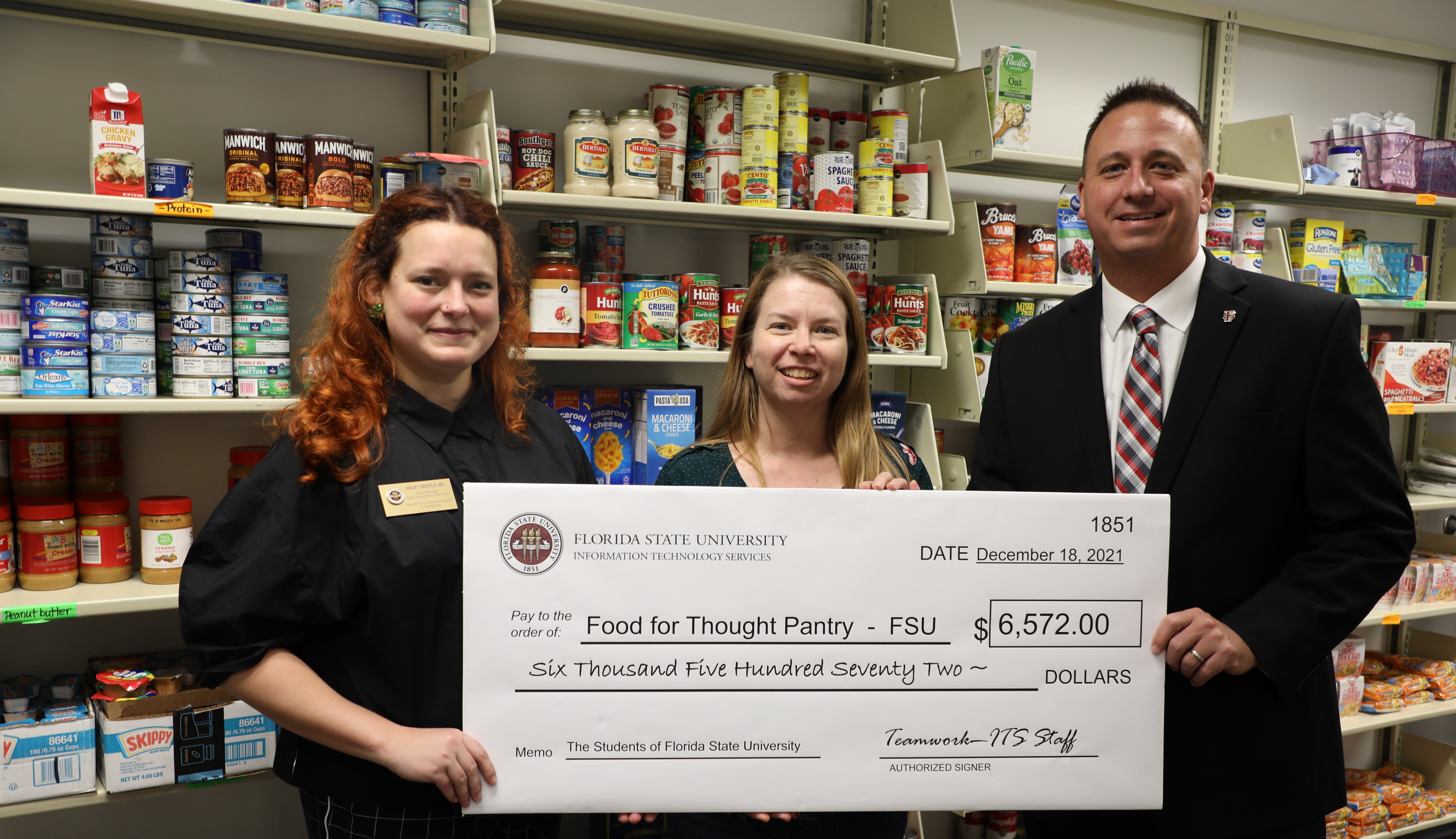
Collaborations
ITAPP program welcomes three new members
The Information Technology Administration Partnership Program (ITAPP) launched in 2006 with two members. Today, ITAPP boasts 17 member units and welcomed an additional 11 staff members to the ITS family in FY2022. ITAPP is a voluntary tech collaboration program that leverages central ITS resources to assist colleges and departments across FSU with managing their IT environments. Units maintain ownership of their IT resources but collaborate with ITS to plan for future IT priorities and strategic directions. Within the past year, ITS welcomed the Dedman College of Hospitality, Facilities and the Florida Natural Areas Inventory into the ITAPP program. "Joining ITAPP has led to significant cost savings for our program while substantially increasing the range and depth of IT expertise we have access to," says Frank Price, director of the Florida Natural Areas Inventory. Also in 2022, existing ITAPP partner International Programs moved their custom application development under ITS management. ITS is leveraging existing tools and languages to convert 17 applications and develop a strategy for efficiently deploying future custom apps for International Programs.
"The mentoring and cross-training that ITAPP provides to staff is an important benefit that units would be hard pressed to implement on their own."
New ITS team created to focus on technology-related relationship management
In February, ITS launched a new Strategic Relationships and Partner Success Team. The six-person team works closely with campus departments to lead strategy and engagement for tech-related initiatives. They also identify opportunities to leverage technology to promote innovation, identify cost savings and drive operational efficiencies across the university. Team members liaise between ITS and campus units, investing in these relationships and sharing awareness of ITS services and how to leverage existing technology offerings. By focusing on building these relationships with the larger university, the team empowers our students, faculty and staff with the best technology solutions for learning and working.
Flex Tech campaign helps employees prepare for the return to campus
We can't help you remember where your office is, but we can help you ensure your technology is working when you find it. After working remotely for nearly 18 months, returning to forgotten offices and dusty desks was suddenly as daunting as going remote once was. To help with the transition, ITS launched a Flex Tech campaign in Summer 2021 to help employees across the university prepare for the transition back to the office and the new hybrid work environment. ITS published a Flex Tech webpage to answer common questions, provide links to tools and offer support for employees who would be working from alternate locations. A Return to Campus Tech Checklist was published to walk faculty and staff through important to-dos, such as installing computer updates and resetting their voicemail password, before settling into work. ITS also distributed business cards listing important technology links and support numbers to full-time employees. These messages and outreach efforts helped ensure a smooth transition back to campus for FSU's 14,000 employees.
Targeted emails notify professors of students in isolation or quarantine
August 2021 … Fall was in the air, and students were back in class. As the university resumed in-person classes for the new school year, FSU needed a method to ensure classrooms remained safe from exposure to COVID-19. The university SAFER team implemented a process to notify professors of any students in their class who were not cleared to attend in person. Each day, an ITS staff member ran a report of positive COVID cases from available data and prepared targeted emails to faculty members listing impacted students' names and estimated return dates. A total of 167 SAFER roster emails were sent over the Fall 2021 and Spring 2022 semesters. Thanks to these timely and targeted messages, professors could accommodate students in isolation or quarantine so their time away did not cause them to fall behind or negatively impact attendance requirements. Additionally, ITS sent automated emails over winter break to keep up with the surge in COVID from the Omicron variant, advising over 600 FSU students and employees to isolate or quarantine.
ITS holiday drive raises over $6,000 for the FSU Food for Thought Pantry
It's the time of year to spread cheer. During the ITS holiday charity drive in December, ITS employees raised $6,572 for the FSU Food for Thought Pantry. The food pantry was created in 2009 to provide nutritious food and meals to currently enrolled FSU students facing food insecurity. The ITS donation enabled the pantry to purchase 2,830 pounds of food, including frozen meat, shelf-stable milk, yogurt, produce and cereal. The goods purchased through the ITS donation made an immediate impact and served 264 unique students for a total of 414 visits during January alone. Located in University Center A, the FSU Food for Thought Pantry always welcomes monetary or non-perishable food donations. "I hope we continue to develop intentional partnerships with entities on campus," said Haley Gentile, case manager for the FSU Department of Student Support and Transitions. The holiday drive is an annual ITS tradition, with the department supporting various local charities through food drives and monetary donations.
ITS inspires the next generation of tech professionals at Take Our Daughters and Sons to Work Day
On April 28, ITS participated in Leon County Schools' annual Take Our Daughters and Sons to Work Day. Seventeen kids participated in the event and enjoyed an action-packed day with their parents. ITS prepared hands-on activities for the young potential technologists, including a remote programming demonstration presented through a miniature train diorama and the opportunity to disassemble a computer and learn about the components. ITS took everyone on tour through the Sliger Data Center, and the kids enjoyed ice cream after. Hosting this event helped spark interest in the next generation of IT professionals and provided a fun learning opportunity for everyone involved.
Virtual workshops provided in partnership with Dirac Science Library
Each semester, the Research Computing Center partners with Dirac Science Library to offer hands-on training to FSU students, faculty and staff. The workshop series, which started as Data @ Dirac in 2019 and transitioned to Data @ Your Desk in the post-pandemic world, provides free technical training on popular programming languages and computing environments. The Research Computing Center has collaborated with FSU Libraries on 15 workshops since the series launched in Spring 2019. During the Fall 2021 and Spring 2022 semesters, the Research Computing Center teamed up with Dirac to offer seven workshops ranging from short sessions introducing Linux and R programming languages to an all-day boot camp on programming in Python. The workshops, offered in-person and virtually, saw a total of 201 attendees.
223
live websites on central website content management system
131,261
ITS Service Desk support requests
6,030
events created on university event calendar
3,301
members of FSU community surveyed by ITS in FY2022
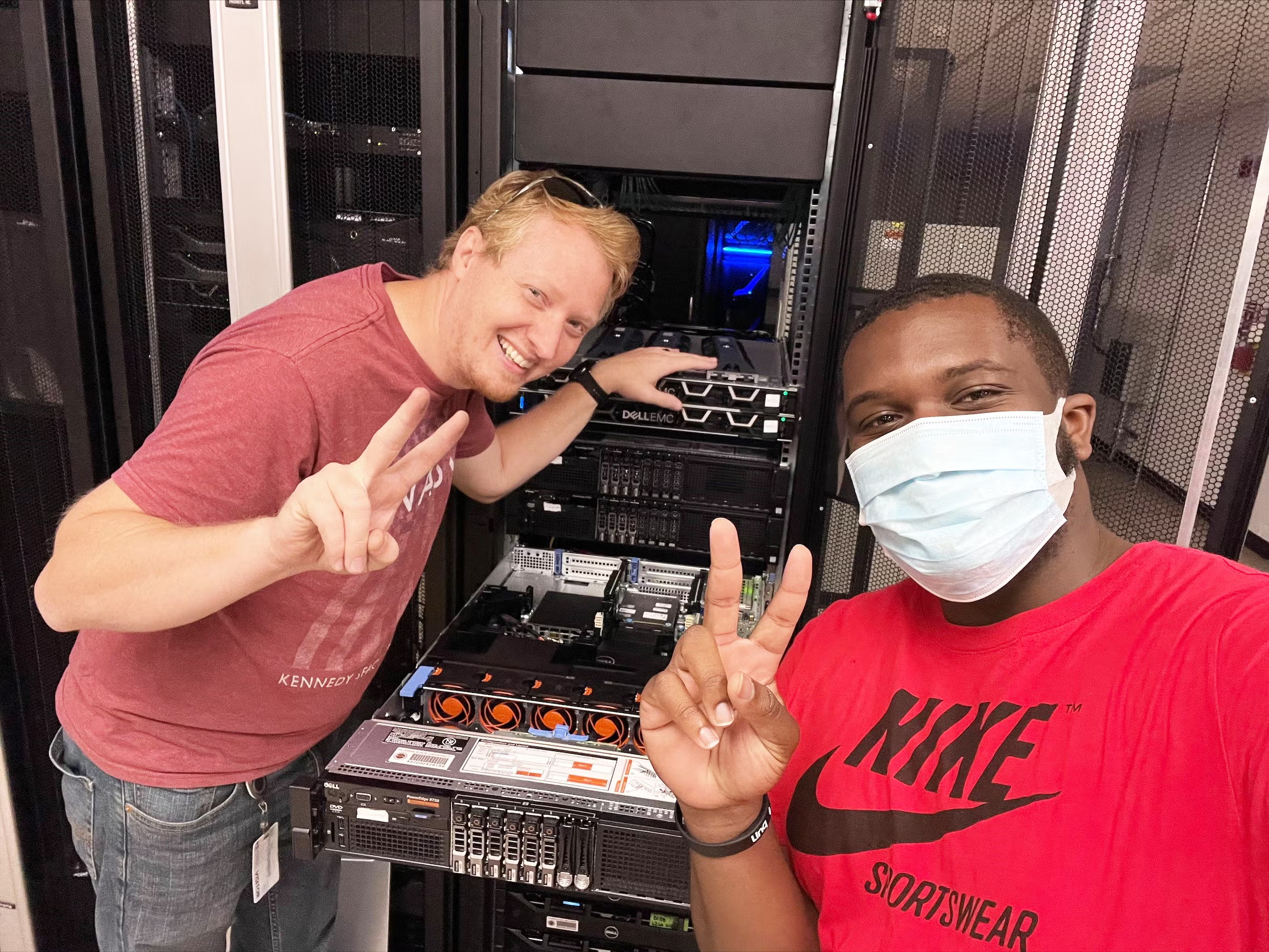
Teamwork
Strategic planning day generates 600 ideas for future ITS operations
What's pink and blue and sticky all over? The brainstorming wall of Post-it Notes from the ITS strategic planning day session. On April 7, more than 150 ITS staff members attended a strategic planning session at the Technology Services Building to develop a roadmap and strategic plan for the coming fiscal year. The planning day kicked off with a large group welcome before attendees broke out into six rooms throughout the building to contribute and categorize ideas related to predetermined strategic priorities. More than 600 ideas were submitted by staff members, ranging from data anomaly tracking to job shadowing fellow ITS colleagues for a day. Submitted ideas were then narrowed to 18 specific tactics to guide ITS operations in the coming year, including improving the university's cybersecurity posture, expanding research technologies, partnering with campus units and creating professional development opportunities for ITS staff. Team members' genuine enthusiasm and variety of thoughts were reflected in the session's outcomes and made the day a resounding success.
ITS empowers employees with professional development and other training opportunities
One of the top ITS strategic priorities is to enhance ITS team capabilities. ITS is doing so by investing in our employees through various professional development opportunities. In Spring 2022, ITS launched the ITS Professional Development Committee to improve training and development within ITS. The committee built a new professional development website to promote technical and general training opportunities, conferences, a calendar of upcoming opportunities and more. ITS also welcomed our third class of MOR Leaders, a program designed to build IT leaders through workshops, applied learning and one-on-one coaching. The Spring 2022 MOR Leaders cohort included 30 employees from ITS and university partner offices. Finally, 25 ITS employees completed Information Technology Infrastructure Library (ITIL) training in January, which teaches best practices for IT service management and supporting processes.
ITS announces new aspirational values
Transformative. Trustworthy. Collaborative. Empowering. These are the values that represent the organization ITS aspires to be. Through a robust process in Fall 2021, staff members identified the values that resonated most with individuals across ITS. A cross-organizational committee and the ITS leadership team collaborated to finalize the words that encompass and define our role as a strategic campus partner. The values aim to inspire employee action and provide purpose and direction for ITS work. "By adopting these values, we can clearly articulate what ITS aspires to be as an organization. As we live our values, these words can be evident through our actions with each other and throughout our community," explains Rebekah Dorn, director of Change Leadership and Planning for ITS. ITS revealed the organizational values to team members at a spring town hall meeting. Though it will take time and effort, implementing our ITS values will bring an exciting change to the ITS community.
"Just want to give a shout-out along with a HUGE THANK YOU … for the bi-weekly, then weekly meeting for the One O365 project to make sure the Service Desk was 1000% prepared. We also want to thank our ITS staff on standby to assist if things start to get crazy. Thank you so much!"
Joe Brigham selected as FSU Employee of the Year
He's with us. Joe Brigham, program director for the ITS Information Security and Privacy Office, was named the 2021 Max Carraway Employee of the Year. The award is a tremendous honor, and Joe was personally selected by former President John Thrasher for the distinction. The award recognizes employees who exemplify a caring attitude and provide consistent service excellence to FSU customers. Joe, who has led several major ITS security projects, including the award-winning Seminole Secure program, has been a stand-out employee in this regard. His nominators commended his project management skills and his patient and collegial attitude. "Joe is a highly effective leader, skilled at creating an excellent team within his unit, who model Joe's strengths of accessibility, open communication and customer support," stated David Coburn, vice president and director of Athletics. "This has resulted in improved services across campus." Joe was selected out of nearly 6,500 employees for the honor and humbly attributes his success to "the people of FSU I have been privileged to work with and call my friends, colleagues and mentors."
88
new ITS hires
255
employees attended Spring 2022 ITS town hall
459
unique views of ITS professional development webpages
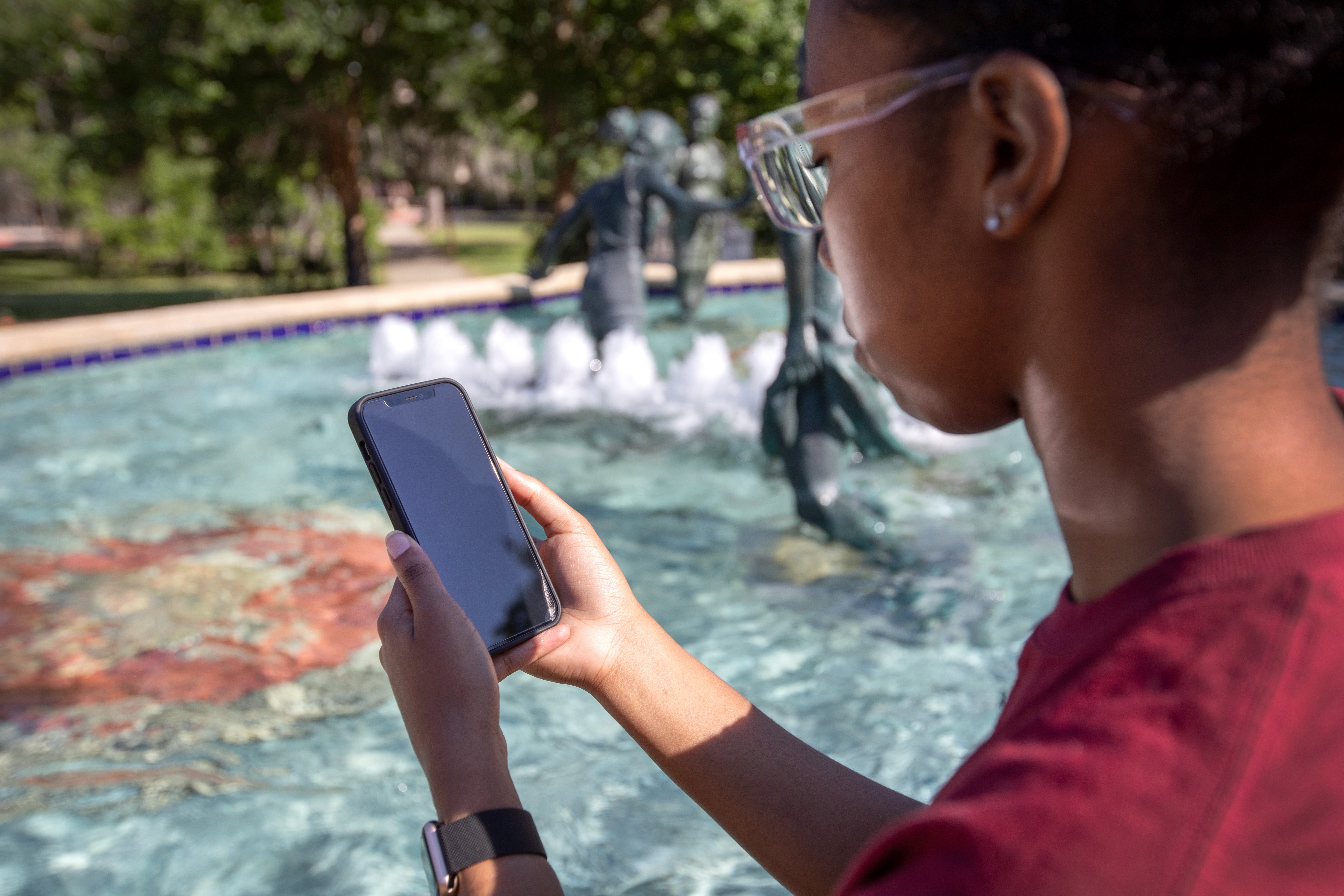
Year Ahead
Improve network reliability
More devices than ever before are connecting to the FSU network. Today's college campus requires the internet connection to be always on and always reliable. ITS is investing in the university network in the coming year to support the increased demand on network load and speeds. ITS will install new core routers, replacing the existing nine-year-old routers connecting the campus to the external network, and will begin a major project to rewire more than 150 campus buildings to improve the speed and reliability of internet across campus. By undertaking the multi-year project, ITS is committed to improving network reliability in locations with poor connectivity.
Expand research technologies
FSU research continues to make headlines around the globe. To support our renowned researchers, ITS is providing the technology required to power more discoveries and more breakthroughs in the years to come. This year, ITS will lead a joint effort with campus leaders to create a research technology roadmap that outlines the long-term planning and adoption of new technologies, services and strategies to support FSU research. Partnerships with the Office of Research and University Health Services will be strengthened, and the Health Data Sciences Initiative will be expanded. As ITS broadens the portfolio of technology resources available to FSU researchers, services will be extended beyond what is available through the Research Computing Center. These efforts, combined with regular feedback, will create a more accommodating research environment at FSU.
Strengthen protection of FSU systems
Cyberthreats are evolving at a rapid pace. ITS must continue to advance our policies and strengthen our security architecture to remain ahead of the modern threat landscape. A major Microsoft license upgrade will deliver the most advanced threat protection available to FSU devices and cloud environment. A unified endpoint management solution implemented across campus will ensure only authorized devices and users access the FSU network. This year also marks the third year of the Seminole Secure program dedicated to improving disaster preparedness and business continuity at FSU. At the end of this year, all major FSU business units will have a business impact analysis, disaster recovery plan, risk assessment and monthly vulnerability scans in place. ITS will also release a new series of action-oriented cybersecurity training to empower individuals to identify and circumvent potential threats, further strengthening the university's first line of defense against cyberattacks.
Increase efficiencies with automation and AI
In the coming year, ITS will introduce topic-specific chatbots to assist with technical support. From there, opportunities to further leverage technologies for engagement with the FSU community can lead to additional partnerships and applications across campus. ITS will also evaluate our existing support systems to search for opportunities to increase automation and streamline processes. Predictive text and advanced online forms will improve the user experience when interacting with ITS systems and simultaneously improve the time to resolution for ITS support requests. These advancements can increase efficiencies in university business processes and improve the overall customer experience, opening the door to future automation and artificial intelligence integrations with university systems.
Credits
Writing
Megan Del Debbio | ITS
Design
Derek Kooi | ITS
Photography
Bruce Palmer | University Communications
Samantha Klupchak | ITS
Alexa Lowry | ITS
Kendrick Ellis | ITS

